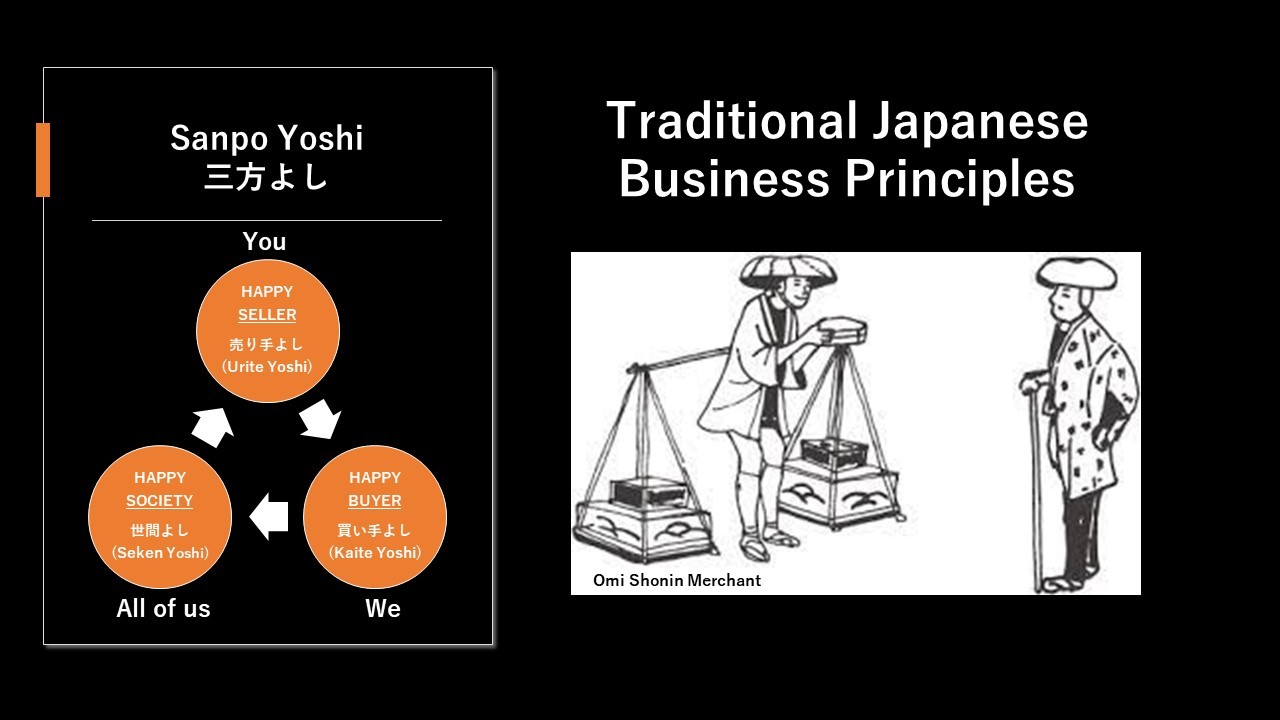In a world where business success is often measured by profit margins and shareholder returns, a Japanese concept called Sanpo Yoshi offers a refreshing perspective. Sanpo Yoshi, which translates to “three-way satisfaction” or “good for the buyer, seller, and society,” emphasizes the importance of mutual benefit for all stakeholders involved in a transaction. This principle encourages businesses to consider not only their own profits but also the well-being of their customers and society at large. In this article, we will explore how companies can embody Sanpo Yoshi and thrive by prioritizing triple goodness.
Understanding Sanpo Yoshi:
Sanpo Yoshi originates from the Edo period in Japan, where merchants adhered to a principle that sought to ensure a transaction was beneficial for the buyer, seller, and society simultaneously. This philosophy goes beyond mere transactional exchanges and embraces the idea of sustainable relationships built on trust and mutual benefit.
At its core, Sanpo Yoshi challenges businesses to think holistically about their impact. Rather than focusing solely on short-term gains, companies embracing Sanpo Yoshi consider the long-term consequences of their actions on all stakeholders, including customers, employees, suppliers, and the wider community.
Examples of Companies Practicing Sanpo Yoshi:
- Patagonia: Renowned for its commitment to environmental sustainability and social responsibility, outdoor apparel company Patagonia exemplifies the principles of Sanpo Yoshi. By prioritizing the quality and durability of its products, Patagonia ensures customer satisfaction while minimizing environmental impact. Moreover, the company invests in grassroots environmental initiatives and advocates for policy changes to address climate change, benefiting society at large.
- Unilever: As one of the world’s largest consumer goods companies, Unilever has integrated sustainability into its business model through initiatives such as the Sustainable Living Plan. By prioritizing the well-being of both consumers and the planet, Unilever demonstrates a commitment to Sanpo Yoshi. Through efforts to reduce environmental footprint, improve health and hygiene, and enhance livelihoods, Unilever creates value for all stakeholders involved.
- TOMS: With its “One for One” model, TOMS has revolutionized the concept of corporate social responsibility. For every pair of shoes sold, TOMS donates a pair to a person in need, addressing both consumer needs and societal issues of poverty and access to footwear. This business model not only drives sales but also fosters a sense of community and purpose among customers and employees, embodying the spirit of Sanpo Yoshi.
Benefits of Embracing Sanpo Yoshi:
- Enhanced Reputation and Brand Loyalty: Companies that prioritize triple goodness build trust with consumers and earn a positive reputation for their commitment to ethical business practices. This, in turn, fosters brand loyalty and attracts socially conscious consumers who are willing to support companies aligned with their values.
- Long-term Sustainability: By considering the interests of all stakeholders, companies practicing Sanpo Yoshi are better equipped to navigate challenges and adapt to changing market dynamics. By fostering sustainable relationships with customers, employees, and the community, these businesses are more resilient and better positioned for long-term success.
- Innovation and Creativity: Embracing Sanpo Yoshi often leads to innovative solutions that benefit society while driving business growth. By seeking ways to create value for all stakeholders, companies are encouraged to think outside the box and develop products, services, and business models that address societal needs and challenges.
Challenges and Considerations:
While the concept of Sanpo Yoshi offers numerous benefits, implementing it within a business context comes with its own set of challenges. Companies may face resistance from shareholders focused solely on short-term financial returns, or encounter difficulties in measuring the social and environmental impact of their operations. Moreover, balancing the interests of multiple stakeholders can be complex and requires ongoing commitment and collaboration.
Conclusion:
In an era marked by increasing social and environmental challenges, the principles of Sanpo Yoshi offer a roadmap for businesses to create value while promoting the well-being of all stakeholders. By prioritizing triple goodness—benefitting the buyer, seller, and society—companies can not only drive financial success but also contribute to positive social change. As more businesses embrace this philosophy, the potential for a more sustainable and inclusive economy becomes ever more attainable. Embracing Sanpo Yoshi is not only a strategic business decision but also a moral imperative in building a better world for future generations.
